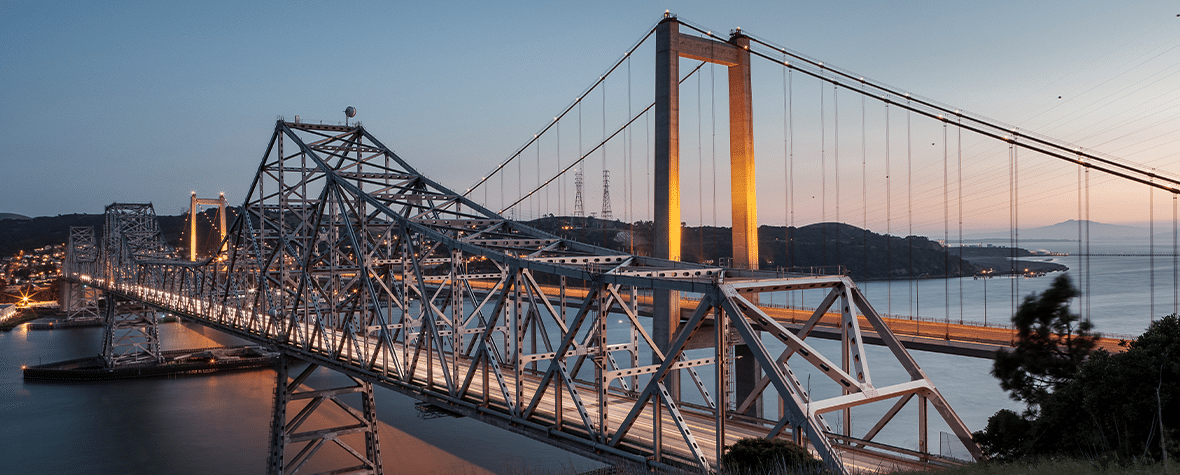La série Energy 101 de MCE se concentre sur le pourquoi et le comment des énergies renouvelables afin que vous puissiez en apprendre davantage sur des concepts tels que les avantages de la biomasse et la science derrière l'énergie solaire. Vous voulez en savoir plus ? Consultez les liens de ce blog pour en savoir plus sur Énergie 101 ou pour plonger plus profondément dans notre Expert en énergie série.
La réduction de la consommation d'énergie inutile permet de diminuer les factures d'électricité, de réduire les émissions de gaz à effet de serre (GES) et de diminuer la pression sur le réseau électrique.
Quelle est la différence entre l'efficacité énergétique et les économies d'énergie ?
L'efficacité énergétique et la conservation de l'énergie font toutes deux référence à la réduction de la quantité totale d'électricité utilisée. Cependant, elles ne sont pas tout à fait identiques. L'efficacité énergétique consiste à utiliser moins d'énergie pour obtenir le même résultat. Par exemple, passer d'une ampoule à incandescence à une ampoule LED permet d'obtenir la même quantité de lumière tout en consommant moins d'électricité. La conservation de l'énergie, quant à elle, est un effort pour utiliser moins d'énergie en général. Les efforts d'économie d'énergie peuvent inclure à la fois des améliorations de l'efficacité énergétique et des actions telles que l'extinction des lumières lorsque vous quittez une pièce.
Pourquoi l'efficacité énergétique est-elle si importante ?
Le changement climatique rendant notre environnement plus chaud et plus sec, nous utilisons davantage d'énergie pour refroidir nos maisons et transporter l'eau. Par conséquent, les fournisseurs d'énergie ont du mal à répondre à la demande, ce qui peut entraîner des coupures de courant.
La mise en œuvre de mesures d'efficacité énergétique réduit la demande sur le réseau, ce qui contribue à maintenir l'électricité et à réduire les coûts. Pour plus d'informations sur les pannes, voir Quelle est la différence entre un PSPS et un FlexAlert ?
L'efficacité du réseau peut également être améliorée par l'utilisation de réseaux intelligents. Un réseau intelligent est un réseau électrique qui utilise une technologie de comptage avancée pour fournir aux services publics des informations opportunes et détaillées sur la quantité d'énergie utilisée dans certaines zones et à certains moments. Le réseau intelligent permet au réseau de réagir rapidement à tout changement de la demande. Il fournit également des informations détaillées aux consommateurs afin qu'ils soient conscients de la quantité d'énergie qu'ils utilisent et qu'ils sachent où ils pourraient améliorer leur efficacité.
Où pouvez-vous améliorer l'efficacité énergétique ?
Bâtiments commerciaux et propriétés multifamiliales
Les propriétaires d'immeubles collectifs et d'entreprises peuvent améliorer l'efficacité énergétique grâce à diverses actions de bricolage, telles que le remplacement des vieux appareils électroménagers par d'autres. ENERGY STAR Les bâtiments peuvent être équipés de modèles certifiés, d'ampoules LED ou d'appareils inutilisés débranchés. L'amélioration de l'efficacité énergétique des bâtiments permet de réduire les factures d'électricité et d'augmenter le confort. Visitez le site de MCE Home Energy Savings page ou Commercial Energy Savings page pour en savoir plus sur nos offres en matière d'efficacité énergétique.
Transport
On parle souvent de l'efficacité énergétique d'un véhicule comme de sa "consommation de carburant", c'est-à-dire de la quantité d'énergie qu'il faut à un véhicule pour parcourir une certaine distance. Améliorer l'efficacité énergétique des transports signifie parcourir la même distance en consommant moins d'énergie. Les véhicules électriques sont trois à quatre fois plus efficaces que les véhicules à essence standard. Le passage à un véhicule électrique ou hybride est un bon moyen d'améliorer l'efficacité énergétique et de réduire les émissions des véhicules.
Votre maison
L'amélioration de l'efficacité énergétique de votre maison vous permet d'économiser de l'argent. C'est l'un des moyens les plus faciles de réduire les émissions de gaz à effet de serre provenant de l'électricité, qui représentent actuellement environ 25% de GES aux États-Unis.
- Débrancher appareils vampires qui consomment de l'énergie même lorsqu'ils ne sont pas utilisés. Utilisez des multiprises avec interrupteur pour contrôler la consommation d'énergie de plusieurs appareils à la fois.
- Remplacer les ampoules à incandescence par des ampoules à LED, qui utilisent 70-90% moins d'énergie.
- Installez plus d'isolation et étanchéifiez vos portes, fenêtres et conduits d'air pour contrôler la température de votre maison.
- Remplacez les appareils qui ont 15 ans ou plus par des modèles à haut rendement énergétique. Lorsque vous évaluez vos choix, recherchez ENERGY STAR modèles certifiés pour les climatiseurs, les cuisinières, les réfrigérateurs et les chauffe-eau.
- Remplacez régulièrement vos filtres à air. Les filtres encrassés font travailler davantage votre système de chauffage ou de refroidissement et gaspillent de l'énergie.
- Utilisez des ventilateurs au lieu d'un climatiseur ou faites fonctionner votre climatiseur à une température plus élevée avec un ventilateur pour maintenir le même niveau de confort. Les ventilateurs ne consomment qu'une fraction de l'énergie des climatiseurs.
- Voyez si vous pouvez bénéficier d'améliorations énergétiques gratuites, telles que l'isolation des combles, le remplacement de la chaudière à gaz, le remplacement du chauffe-eau et bien plus encore, grâce à notre programme Programme Home Energy Savings.
- Le passage aux ampoules LED permet à un foyer type d'économiser jusqu'à $1,000 sur une période de 10 ans.
- Laisser les appareils vampires branchés lorsqu'ils ne sont pas utilisés est responsable d'environ 10% de l'énergie utilisée dans un foyer moyen.
- Si seulement 1 ménage sur 10 adoptait des équipements de chauffage et de refroidissement à haut rendement énergétique, nous pourrions réduire les émissions de gaz à effet de serre de 13 milliards de livres par an.




